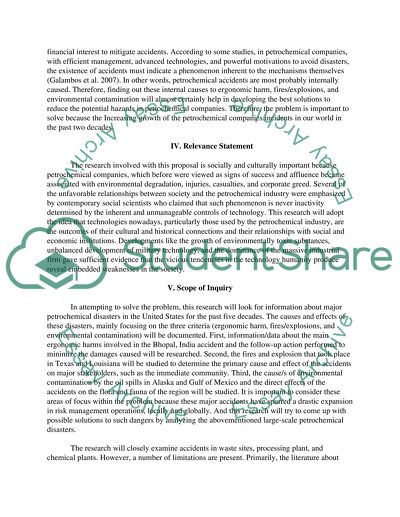Cite this document
(“Reducing the Risks of Petrochemical Companies Essay”, n.d.)
Reducing the Risks of Petrochemical Companies Essay. Retrieved from https://studentshare.org/english/1441881-the-risk-of-petrochemical-companies
Reducing the Risks of Petrochemical Companies Essay. Retrieved from https://studentshare.org/english/1441881-the-risk-of-petrochemical-companies
(Reducing the Risks of Petrochemical Companies Essay)
Reducing the Risks of Petrochemical Companies Essay. https://studentshare.org/english/1441881-the-risk-of-petrochemical-companies.
Reducing the Risks of Petrochemical Companies Essay. https://studentshare.org/english/1441881-the-risk-of-petrochemical-companies.
“Reducing the Risks of Petrochemical Companies Essay”, n.d. https://studentshare.org/english/1441881-the-risk-of-petrochemical-companies.


